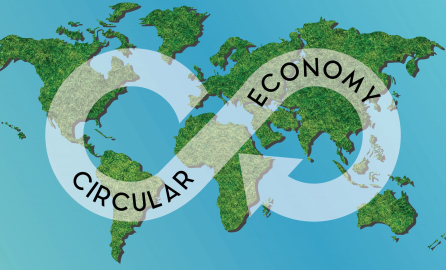An EU funded report by the Africa RISE and SWITCH to Green Facilities laid out steps towards a Extended Producer Responsibility (EPR) system in RWANDA. The report included an evaluation of the current frameworks and systems, and...
Description
Accelerating the Circular Transition
The Circle of Life between Developed and Developing Countries
Who are we? We are a cluster who want to make a real difference. This cluster is focusing on mainstreaming the REUSE sector and we are outcome orientated.
Why? There is a huge variety of resources that can be reused, repaired or upcycled, and much is going to waste - being landfilled or incinerated or broken up for recycling which could be used. We all know this. We want to achieve an outcome: develop a variety of streams for goods to be reused and upcycled internationally that can benefit developed and developing countries. All this can reduce the need for further consumption, production, and disposal of goods.
United Nations University and many others have been endorsing the benefits of this international cooperation: https://unu.edu/publications/articles/rich-and-poor-nations-can-link-up-to-recycle-e-waste.html.
Developed countries have a moral obligation to work this out. There is a big problem in achieving outcomes and delivering outcomes as developing countries are suffering from climate change.
This group is about AID not trade.
Benefits include:
- Carbon footprint can be reduced of developed countries especially as a reduction of production could be due to more cheap reusable goods.
- Landfill and incineration costs and environmental impact can be reduced
- Employment can be generated internationally to upcycle, repair, export and sell goods in developing countries
- Consumers internationally can benefit from streams of cheap goods for reuse or upcycling.
- Co-operation between countries builds co-development and co-resilience, which further builds relationships between countries and reduce conflict.
Problems with doing nothing:
- One example, 1.5 million people are dying in Madagascar now due to the first climate change created famine, while rich countries remain comfortable that have caused it.
How can we do this? We want to redesign and rethink reusing:
- Develop more reuse streams that link developing and developed countries in a various ways.
- Build reuse centres with export links to developing countries where it is more financially viable to distribute/sell/fix/upcycle goods
- Support government legislation to encourage reuse
- Set national goals for reuse
Where? This is a global and international business, and one in which developing and developed countries can work together and benefit mutually from developing steams for goods to travel
How can you help?
We have:
- a network in developing countries, a chain of organized capable organisations to help
- We have the transportation means between Europe and developing countries of Africa.
We need you in different areas, eg areas of of policy, funding to achieve the following:
- Collection of goods in Europe – eg from civic amenity sites
- Shipment of European goods to European harbours
Please join our online group here
